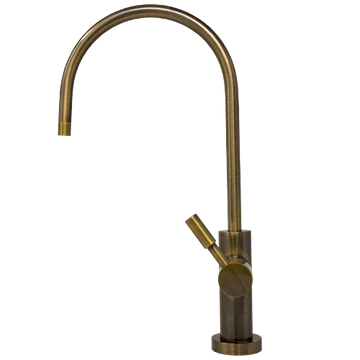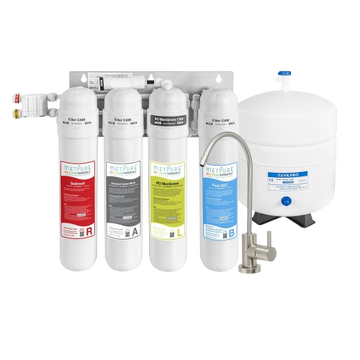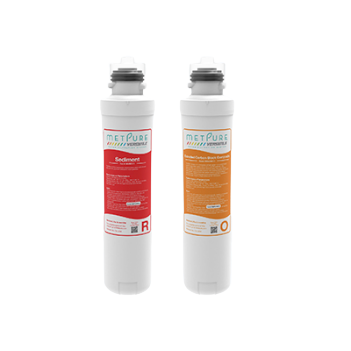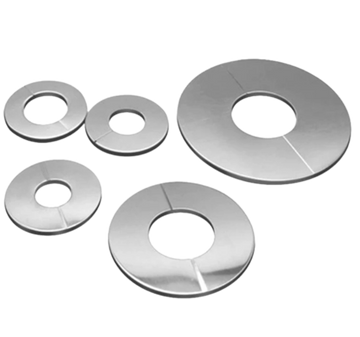With health and wellness a priority for many people in today’s world, safe and clean drinking water is an increasing need. Innumerable industrial activities and overwhelming environmental pollution have raised many concerns about the safety of our water resources. The water reaching us through industrial pipes or packaging has been proven to have more contaminants than is safe for human use.
Concludingly, more families and individuals are seeking ways to guarantee safe and purified water for drinking and other purposes of daily use. Among the many traditional and modern methods of purifying water of harmful impurities, domestic water filtration is a popular solution. These systems provide safe and quality water to your taps, purified under your watch in your house.
These systems ensure the removal of all impurities, provide better quality and provide peace of mind with safe and purified water straight to your household taps. However, with the increased need and demand, the options available in the markets have also increased, creating confusion for customers about which right choice to opt for or whether to invest in installing one.
Best Water filtration system:
When considering whether it's worth investing in a water filtration system, the Metpure Versatile Reverse Osmosis Water Filtration System stands out as an exceptional choice. This high-quality system is designed to deliver clean, purified water through its advanced 4-stage filtration process, which effectively removes up to 99% of contaminants such as lead, mercury, and chloroform.
This article explores the benefits and drawbacks of household water filtration systems to help you consider their effectiveness, cost, convenience, and health benefits. After reviewing these factors, you will be able to reach a proper judgment of whether a household heating system is worth investing in according to your filtration needs or not.
How do Water Filters Work for Households?

Water filters work as a physical barrier that traps or blocks debris like sand or bacteria, separating them from the water. Many water filters function with different barrier gap sizes or membranes, affecting the amount or size of debris blocked and the overall water flow from the filter. Specific kinds of water filters are used for household and domestic use. Household water filters range from whole-house filters to specific-need applications.
Types of Water Filtration Systems
Several types of water filters and filtration systems are available, designed to address specific needs and types of contaminants. Understanding their differences and workings can help you determine whether you need to invest in a water filtration system. Want to learn more about the Best Faucet Supply Lines For Your Bathroom Or Kitchen
- Activated Carbon Filters: They remove chlorine particles or dissolved chlorine, sediments, and volatile organic compounds (VOCs), affecting water’s odor. They can be installed in sink filtration system, like under-sink filter, faucet filter, pitcher filter, or water filter tap.
- Reverse Osmosis (RO) Systems: The reverse osmosis water filter is one of the top household water filters. It uses a semi-permeable membrane to remove many contaminants, including bacteria, heavy metals, nitrates, fluoride, and dissolved salts, which can potentially cause waterborne diseases. Home RO filters push water through the reverse osmosis membrane with pressure to disinfect it. These filters are expensive but are highly effective for long-term use.
- UV Filters: These filters consist of an Ultraviolet (UV) light mechanism that kills bacteria and viruses in the water. They are commonly used with other filters to form an extensive setting for filtration and protection from microbial impurities in water.
- Whole-house filters: These systems are installed at the entry point of the water source in your house. They ensure all-encompassing filtration of water entering your house. Most whole-house water filters use a four-step method to clean your water. A pre-filter first removes large particles of contaminants; second, an activated carbon and copper-zinc KDF filter disinfects the water; and finally, the post-filter water further purifies the water. The list below presents the top household water filters.
Benefits of Water Filtration Systems
A water filtration system can offer you several benefits worth investing in. Some of them to consider are discussed below:
- Water filtration systems remove contaminants and pollutants from water, providing quality drinking water and reducing the risk of waterborne diseases and other health issues.
- Water filters can get rid of odor and improve the taste of water significantly by removing cleaning agents like chlorine and other impurities.
- Water filtration systems greatly help recycle water and reduce the reliance on bottled water and thus plastic usage, making them a better investment for environmentally conscious people.
- Although some water filtration systems may cost a lot, it is only the initial cost. Modern water filters require minimum maintenance, provide high-quality results, and go a long way as a product and for long-term health benefits. Thus saving many costs along the way.
Drawbacks of Water Filtration Systems to Consider
Despite the benefits, several discussed above, water filtration systems also have some drawbacks that customers should consider before investing in them:
- The initial cost of purchase and installation of water filters can come out to be large for many people. Especially when opting for more advanced and efficient systems like reverse osmosis water purification or whole-house water filters, one should make up one's mind to invest a significant amount.
- Additionally, while some water filters require less maintenance, most require frequent and regular maintenance to work effectively and ensure product quality results.
- Some water filtration systems and products produce water waste while filtering water, such as reverse osmosis units, which is a concern for water conservation areas.
- Not all filtration systems remove all types of contaminants. Specific filtration systems are designed to remove particular kinds of impurities, thus limiting most water filters’ contaminant removal potential to specific kinds. Thus, one needs to consider the cost and type of water filters according to their need.














